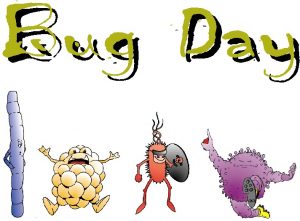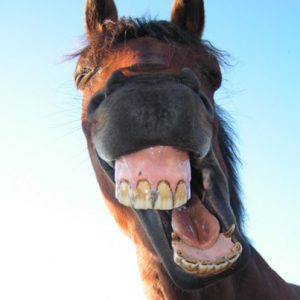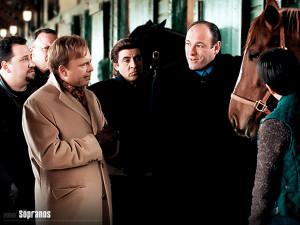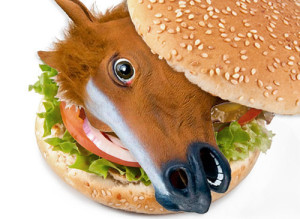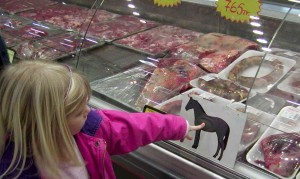As Europe wakes up to food fraud in the form of horsemeat, French folks learned today that meat from horses used in laboratory procedures was sold as fit for human consumption and landed on French dinner table.
Officers from France’s National Gendarmerie, accompanied by food safety and veterinary investigators, carried out raids in 11 regions in 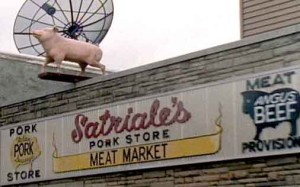 southern France before dawn, arresting 21 people, according to a statement.
southern France before dawn, arresting 21 people, according to a statement.
An official, speaking on condition of anonymity because details had not yet been released, said the animals had been used in laboratories — including that of drugmaker Sanofi-Pasteur — and then, instead of being destroyed, ended up in the food chain.
Previously, Chris Elliott, professor of food safety and director of the Institute for Global Food Security at Queen’s University Belfast, issued a report on the horsemeat scandal of earlier this year, and concluded it wasn’t just food fraud, but serious food crime in the mainstream industry.
According to the Guardian, while the report is careful not to join all the dots, and Elliott himself stresses that the scale of hidden illegal activity in our food supply is almost by definition impossible to calculate, it leaves little doubt that the UK has a very serious problem.
Some of the most devastating information comes in a series of panels and oblique references to what he believes is really happening.
We are told of the case of a cold store where the authorities uncovered evidence of extensive criminal planning. The store’s primary business  was to re-label animal byproducts classed as eligible only for pet food as fit for human consumption, using forged veterinary health marks.
was to re-label animal byproducts classed as eligible only for pet food as fit for human consumption, using forged veterinary health marks.
The people involved even advertised to the industry that they could re-label out-of-date meat as part of a “government-approved service”.
But there was, and remains no, capacity “for the major criminal investigation the evidence, and the criminal profits, justified”, Elliott reports.
 Live animals and more than 17t of horsemeat were seized from several slaughterhouses in Belgium, Ireland, Italy, Spain and the Netherlands.
Live animals and more than 17t of horsemeat were seized from several slaughterhouses in Belgium, Ireland, Italy, Spain and the Netherlands.
